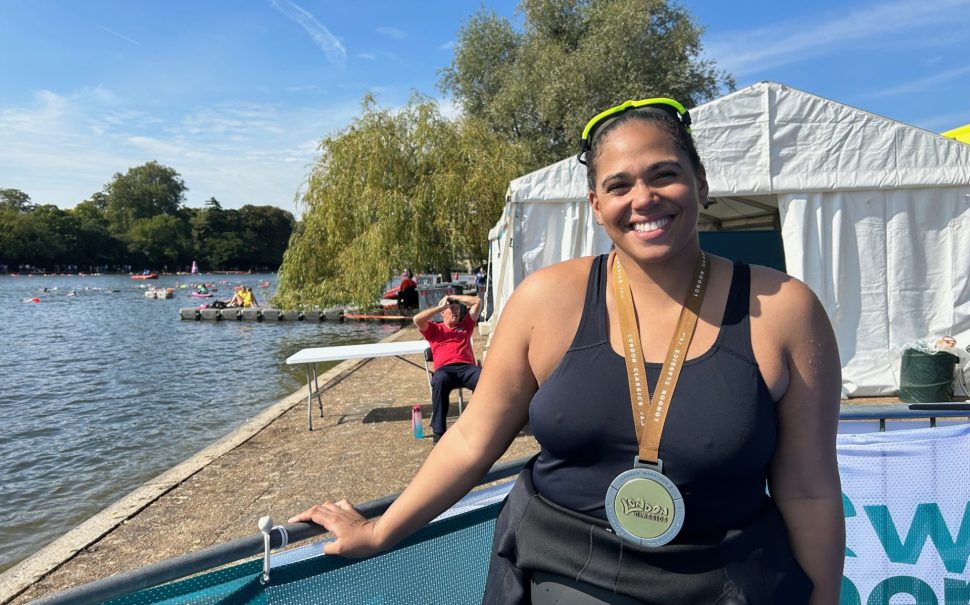The worst thing was the panic.
Shareefa thought she might drown when she first tried to swim. After five metres, she had to cling to the side of the pool, breathing heavily.
That was eight years ago.
Last week, she overcame her fears to swim more than two miles in open water.
Now the plus-size model and presenter from south east London hopes to inspire others with her story.
“Going from being that girl who was clinging to the side of a 15-metre pool to taking on two miles today — I don’t even recognise myself,” she said.
“I’m getting emotional, because as someone with ADHD I never really tend to finish what I start.”
Shareefa, who goes by her first name, taught herself swimming when she was 24.
This month she collected her London Classics medal, which is awarded to participants of the three running, cycle and swimming events organised by London Marathon — including Swim Serpentine, which takes place in the 40-acre lake in Hyde Park.
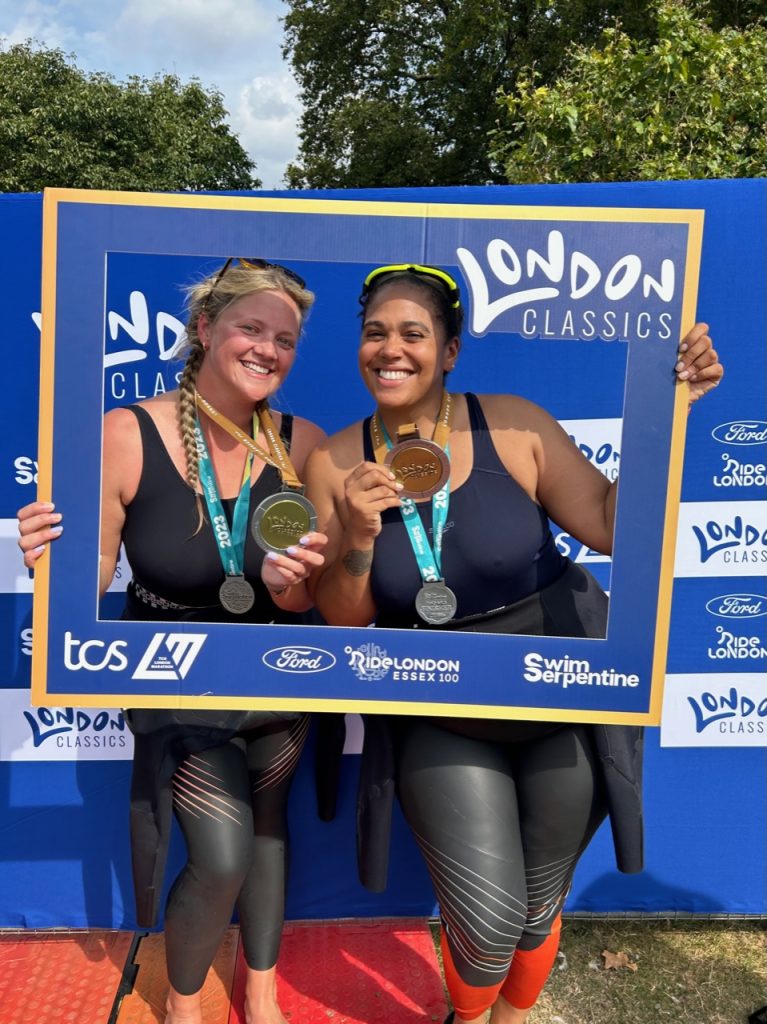
“I actually never wanted to swim. I always hated the idea of swimming,” Shareefa, now 32, said.
During her childhood in Norwich, she experienced many barriers to learning to swim. Her mother often struggled to put food on the table, let alone pay for swimming lessons for her children. When Shareefa was six, she started busking outside her local Tesco to support her family.
Before her modelling career took off when she was 24, she could barely afford everyday necessities.
“I couldn’t afford to learn to swim when I was in my early twenties living in London. I was at the point where I was going to the supermarket and choosing between tampons and toothpaste, going ‘Which one can I afford this week?” she said.
Another problem was the swimming kit itself. Shareefa couldn’t fit swimming caps over her coily hair, and swimsuits in larger sizes were scarce.
“I’ve always had big hair, from when I was really little, so it was already an uncomfortable situation for me,” she said.
Not being able to swim properly just added to the anxiety she felt around the activity.
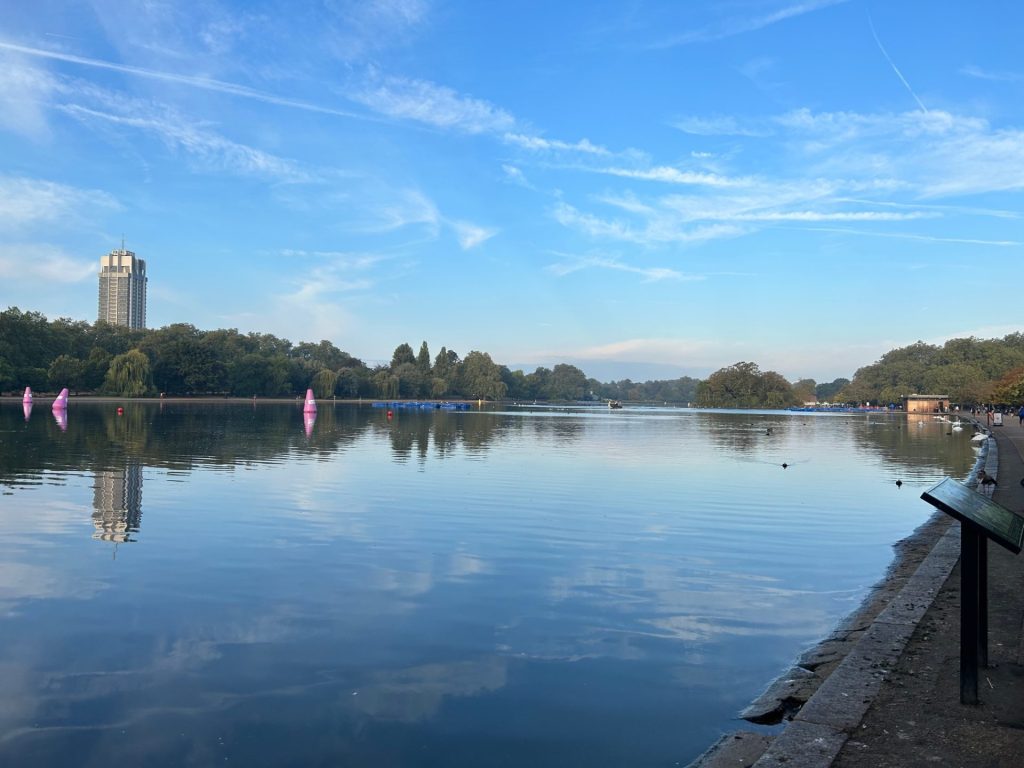
“People get really irritated when you’re in the lanes and going too slow,” she said. “I was really conscious of that, so I’d never been to a public pool because I just knew I would get in everyone’s way.”
But in 2015, Shareefa spent seven weeks living with a friend in a building that had a private pool. Free of what she felt was the burning gaze of other swimmers, she tried to get into the water for the first time.
“I remember getting in the pool and clinging onto the edge for dear life. I wasn’t able to swim five metres without having to try and cling onto the side.”
It took her weeks to start getting comfortable in the pool, with the help of an app from which she copied movements.
“The more I practised, the more comfortable I got in the water. I learnt how to float, then I learnt how to do a stroke, and eventually, by the end of the seven weeks, I could do a couple of lengths.”.
When she moved out, she had enough confidence to go to public pools, starting out in the slow lanes and overcoming her anxiety of being in the way of other swimmers.
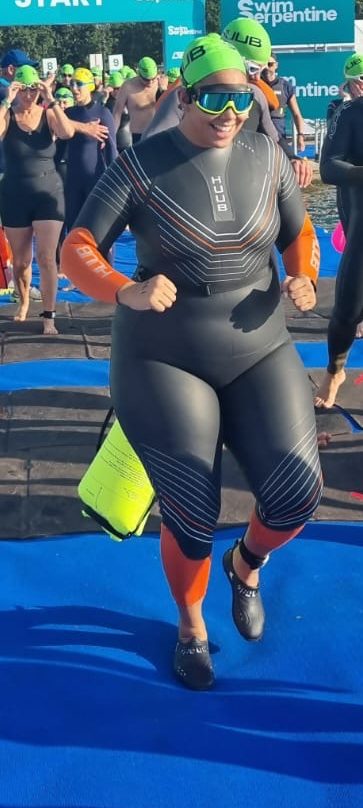
Fear and discomfort have never discouraged Shareefa from trying new things. In 2019 she took part in the Vitality London 10,000, a 10km run starting on The Mall — wearing only her underwear.
With four other women, including other plus-size models and the journalist Bryony Gordon, she wanted to make a statement for body positivity and inclusiveness in sport.
“We have to start representing people of all sizes in the fitness world,” Shareefa said.
“We have this weird idea that the goal of fitness is to look a certain way. But what if we flipped the narrative and said, ‘No, the goal of fitness is to feel better, to sleep better, to have a stable mood’?”
The aim to show larger-bodied people that they, too, could get into running motivated her to keep going, completing a half-marathon first and the London Marathon in 2021.
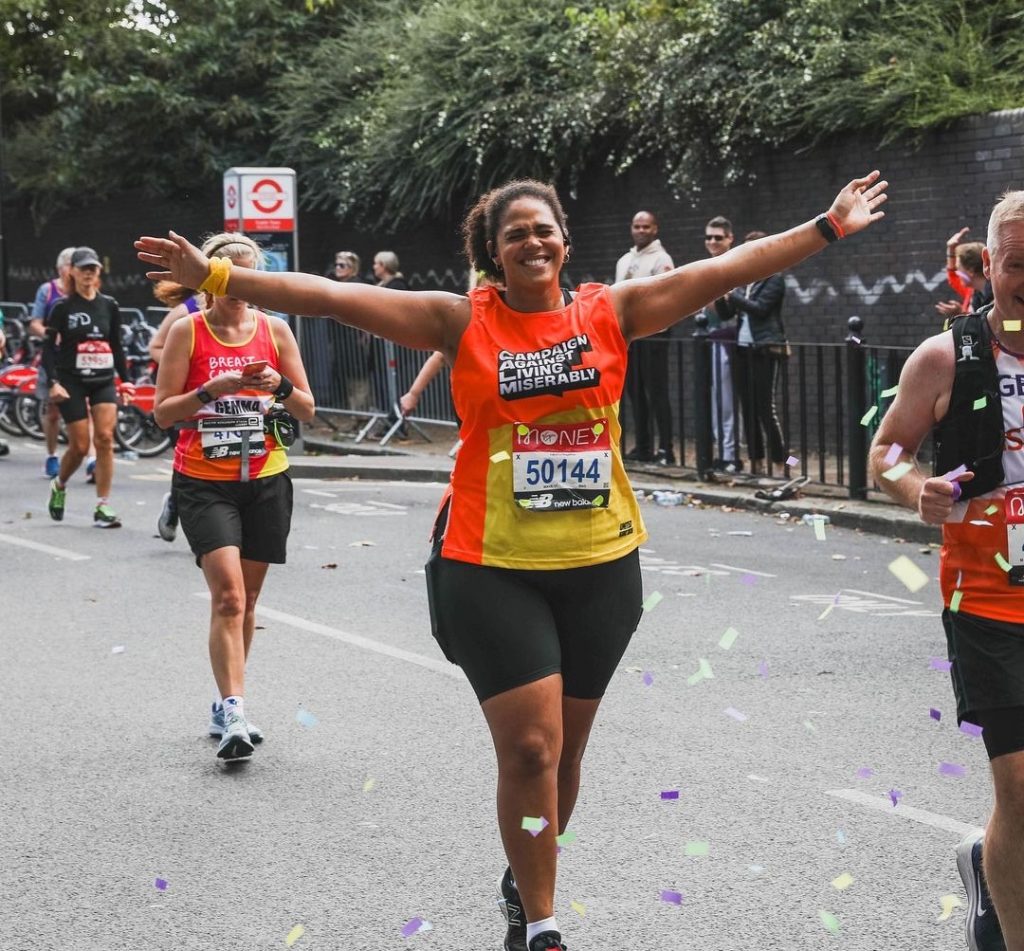
“It was hell on earth, but I am so glad I’ve done it. It was an amazing experience,” she said.
Last year she took part in Ride London, a 100-mile cycle. After that, the only thing in her way to a London Classics medal was the two miles around the Serpentine.
About 6,000 people have been awarded the London Classics medal.
“At all these events that I’ve done, there are predominantly white males of a certain size. There are way less women. Even if you aren’t bigger in size, the kits aren’t made for women with big breasts,” Shareefa said.
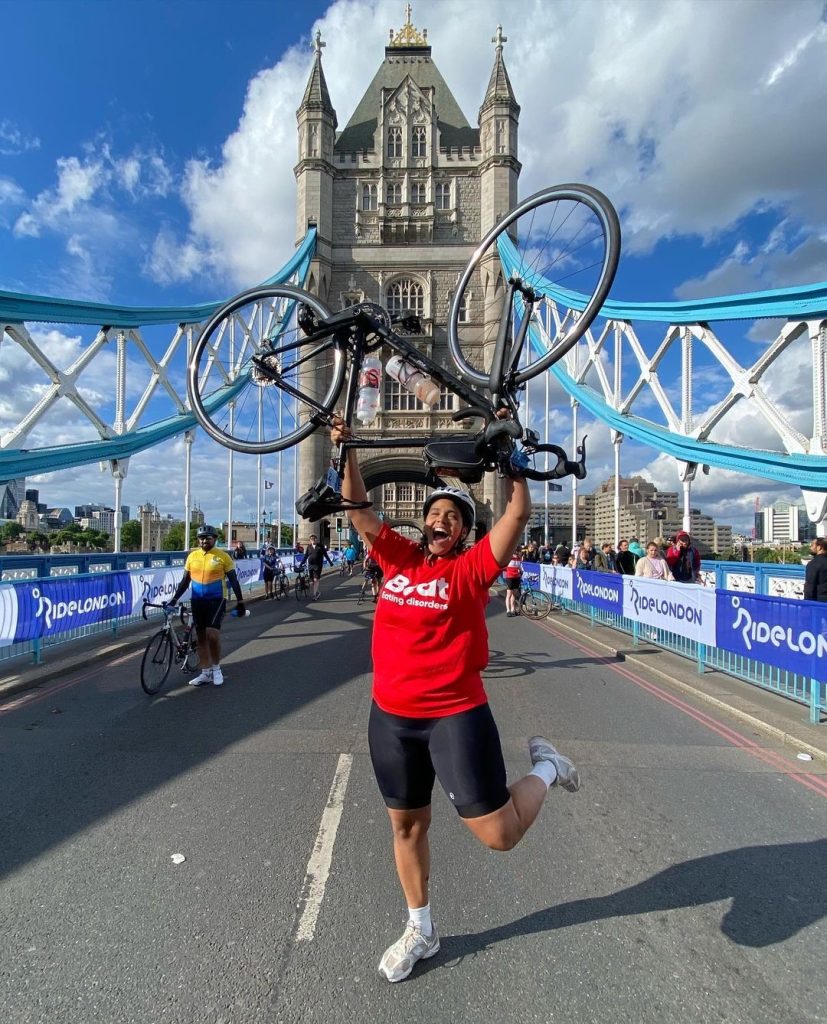
“I’m hoping that by getting a medal, I can show them, ‘Hey, look, you can do this too, this is for big people, this is for brown people’.”
But Swim Serpentine would be Shareefa’s biggest challenge yet. Not only did she still struggle to find a suitable kit for her body and hair, she is also scared of open water and the dark, and her ADHD made the monotony of swimming difficult to cope with.
When I called her the day before the swim, she had tried on six wetsuits. None fitted properly. That evening, she finally received a wetsuit that fit, made by the swimwear brand Huub.
The day of the big swim, Shareefa felt calm. She had trained in different lakes, her wetsuit fitted like a glove and she was with her friend Jade Seabrook, a model and actress who would also complete the two-mile swim.
The Serpentine glistened in the sun and was still undisturbed when they arrived at 8am. The water would be warm, 20.8C, after the late-summer heatwave.
But just before Shareefa’s starting time at 9am, things started to go wrong. When she tried putting her cap on, it ripped almost immediately. The second one slipped off her hair about halfway through the swim.
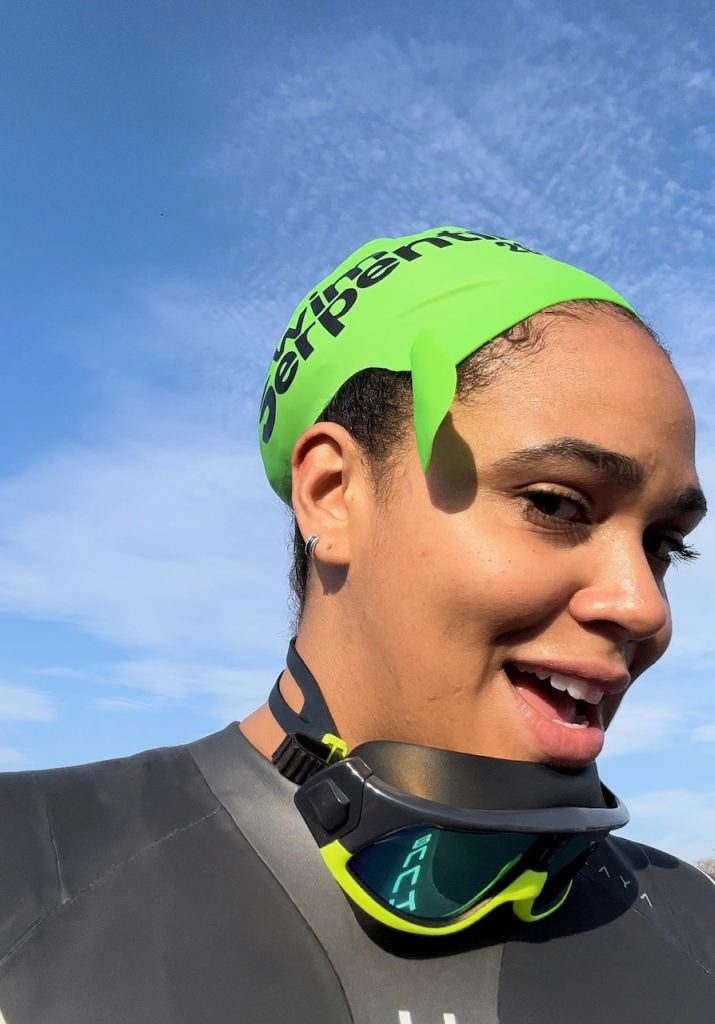
Shareefa tried not to let the setback faze her — she would complete the swim, no matter what. Her swimming headphones blasted songs by her favourite artist, the DJ Fred Again, which helped with her ADHD.
“I kind of made peace with the fact that my hat was just a goner, and then Fred Again came on and motivated me.”
But then her goggles started letting water in, prompting her to pause several times to readjust them. Suddenly she realised that everyone was a long way ahead of her and she was the last one in her group.
“I don’t mind being the last but because I get afraid in the open water, I didn’t want to be alone,” she said.
She started swimming faster and faster, trying to catch up with the rest of the swimmers, slowly running out of breath.
“I had a little panic, about three quarters of a mile in. I actually started to almost cry,” she said. “But then these two ladies, Dawn and her friend, swam by and asked ‘Are you all right, love?’”
Shareefa told them she thought she had to end her swim right there and then, but the two women invited her to swim slowly with them.
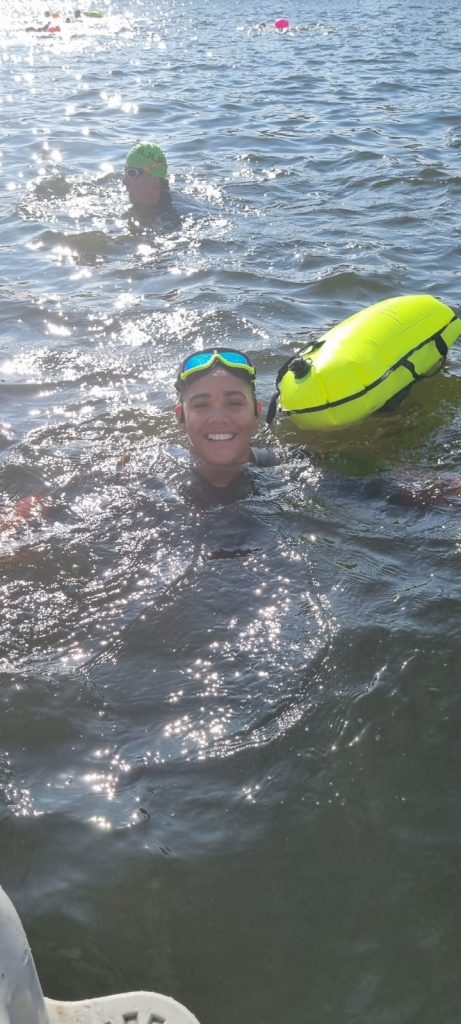
She felt more confident after meeting Dawn — and after having a little snack that she had stored in her tow float. Shareefa continued swimming after the first lap around the lake, which constituted the first mile.
In the end, it took her 2 hours 33 minutes to complete the whole swim — which was actually 2.4 miles long. Due to her fear of the darkness and the open water, Shareefa swam most of the distance with her eyes closed, therefore missing some of the markers and prolonging her route around the lake.
When she left the water she was smiling ecstatically.
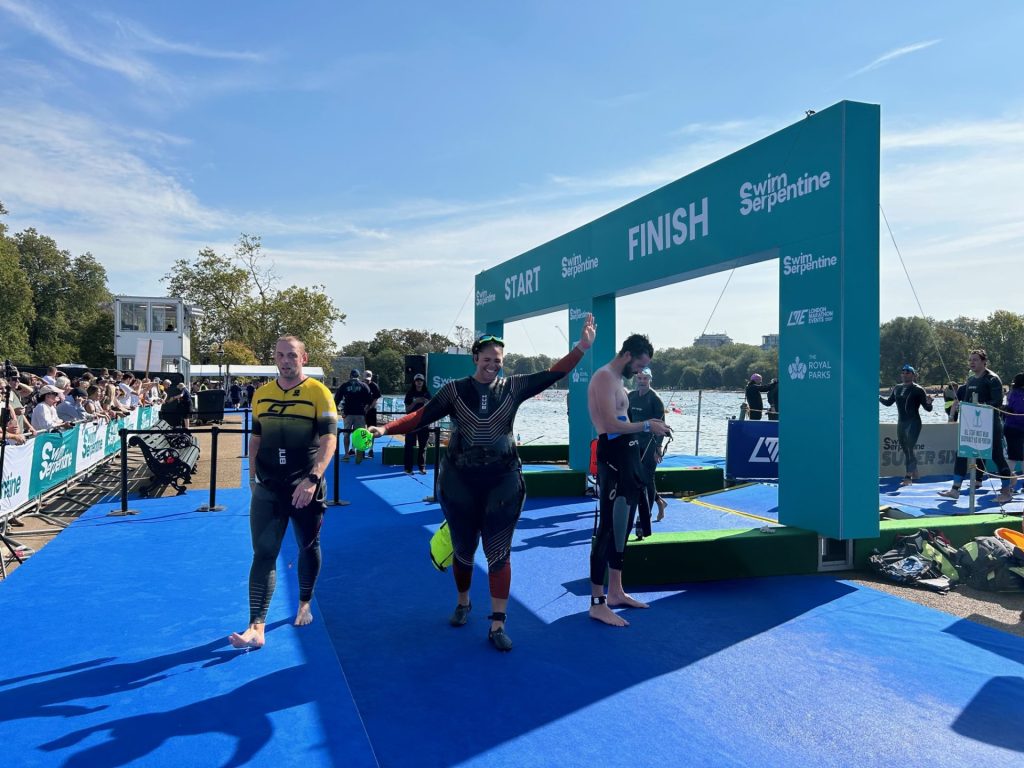
“I was just so glad to get out of the water. I was so exhausted. My body was screaming, ‘Shareefa, you have to stop.’ But it was really good, I enjoyed it,” she said.
Fear of open water, non-stop issues with the swimming kit, exhausting herself almost beyond her limits — why is Shareefa pushing herself so hard and against all odds?
“I really believe in the power of visibility. As Beyoncé famously said, ‘You can’t be what you can’t see’,” she said.
“I get messages on Instagram from parents who say, ‘My daughter saw your Elle magazine cover and it made her feel like she could be that person.’
“I hope that representation works the same way with this swim. I want people to see that there are wetsuits in our size, and they do have caps that fit on our heads.
“There is too much narrative in the black community that black people can’t swim. Of course they can!”
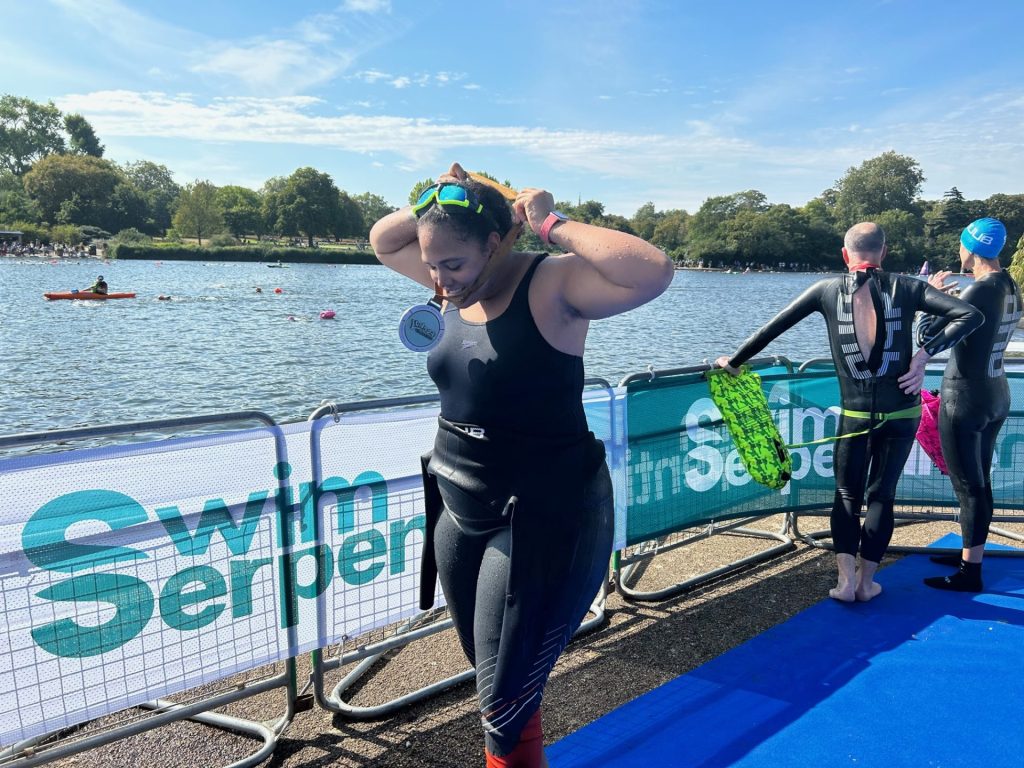
Shareefa wants to make access to swimming easier for black people, campaigning for Swim Serpentine to offer Soul caps, which are made for afro hair.
She said: “At the moment, you have to put in more effort to get into swimming if you’re black. It reminds me of the saying, ‘You have to work twice as hard as a black person in this society to get half as much.’”
Swimming skills are in decline. Last year a report by Sport England showed that 28 per cent of children in year 7 can’t swim at least 25 metres.
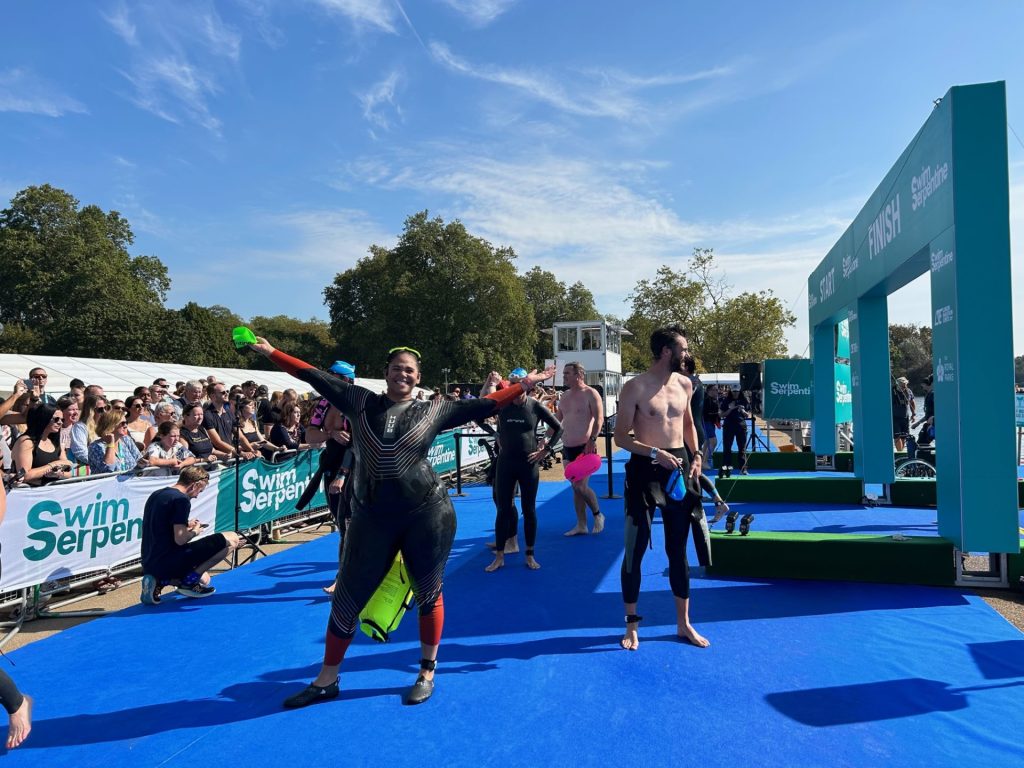
Shareefa sees swimming as an essential skill that could save lives.
Will she continue swimming, now that she has achieved her goal?
“I will definitely keep swimming for fun. What I’d like to be able to do is to swim with my eyes open, that would be nice.”
